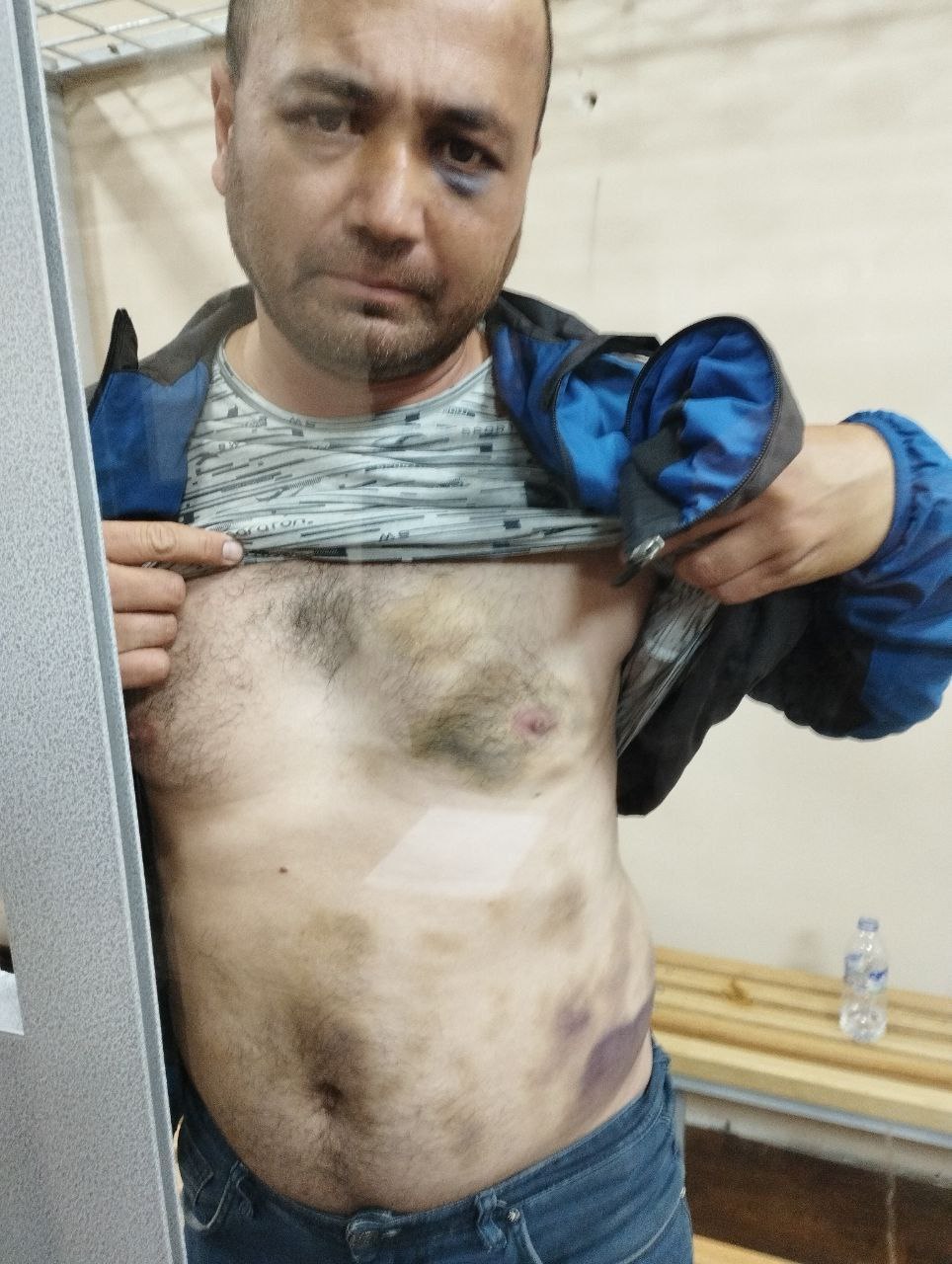Just yesterday, the foreign investor Dilshod Turakhodjaev was celebrated in Uzbekistan. Today, however, the 40-year-old businessman is facing a 15-year prison sentence.

Everything started off wonderfully. The Russian businessman, returning to his historical homeland, engaged in vigorous activities to develop tourism, investing 25 billion sums in the construction of the "Kosmos" hotel. He was awarded the title of "Promoter of Tourism" and even made it into Uzbekistan's "Golden Notebook" as a successful compatriot.
All of this came crashing down on April 12, 2023. On that day, Turakhodjaev received a phone call summoning him to the head of the Pap district police in the Namangan region. There was no official summons, no criminal case opened. Instead, he was simply pressured to confess to being the leader of a gang attempting robbery.
Clearly, no one in their right mind would admit to such charges. So, the strong law enforcement officers "helped him reconsider."
Medical examinations revealed "numerous bruises and contusions, suspected broken ribs, and a traumatic brain injury." Turakhodjaev, who had never encountered the law before, was handcuffed and thrown into a cell. It's no surprise that soon after, the entrepreneur signed everything as he was "requested."
Namangan detectives, in collaboration with capital city officers, found ten "accomplices." This entire "gang," allegedly armed with a stun gun, knives, and hammers, intended to rob the home of local businessman Narzullo Khamidkhanov. All of them were supposedly lured by a safe filled with money.
The investigators were so hasty that they overlooked the fact that many "gang members" were not even acquainted with each other.
As the investigation progressed, other telling details emerged.
It turned out that the "victim" Narzullo Khamidkhanov was completely unaware of any impending attack against him. He was informed about this by the police in Tashkent, where he was also taken in handcuffs. They even dictated how to write a statement against Turakhodjaev.
Khamidkhanov had never had any significant money, so he genuinely couldn't understand why an "attack" was being plotted against him. Interestingly, the "victim" did not suffer in any way.
Moreover, Turakhodjaev and Khamidkhanov turned out to be old friends—classmates and business partners.
As proof of the "criminal intent," the prosecution presented a police recording of a phone conversation involving certain "individuals." One of them mentioned needing to go to Namangan to "check out" the local oil magnate. The victim’s name was not mentioned, the timing of the supposed attack was unclear, and the voice did not belong to Turakhodjaev!
In short, this was raw operational information, lacking any real "evidence." Yet, it was enough to inflate the criminal case.
Meanwhile, in court, where no one admitted guilt, the prosecutor demanded a 15-year prison sentence and two million dollars as "material damage." The source of this amount remains a mystery.
According to lawyer Ulugbek Nazarov, there is no actual crime established, its direct participants are unidentified, their motives unclear, and there isn't even a victim. It seems that the defendants have become unwitting victims of a campaign against street and organized crime that began in late December last year, when almost all "authorities" were swept up. But what does this have to do with foreign business?
Observers familiar with the intricacies of the law enforcement system believe the matter revolves around a simple "takeover." Someone must have taken an interest in Turakhodjaev's "Kosmos," which, by the way, is still welcoming guests but is now listed under the balance sheet of Microcredit Bank, along with other assets. A "contract" was put out against a person lacking the "necessary connections" in the republic. The rest was just a matter of procedure.

Or are we mistaken? Perhaps there is a directive to start terrorizing Russian businesses in Uzbekistan altogether. But it seemed that this was over after Shavkat Mirziyoyev came to power.
Vladimir Putin's May visit and the recent arrival of Mikhail Mishustin in Tashkent were almost entirely dedicated to enhancing economic cooperation between our countries and "improving" the investment climate. How then should we interpret the entire police turmoil?
Currently, this high-profile case is being heard in the Tashkent City Criminal Court. Its outcome is being closely monitored not only in the republic but also by the Moscow-based Fund for Support and Protection of the Rights of Russian Compatriots Living Abroad. Additionally, potential investors, especially among Russians, are watching closely.